History DefinitionHistory is the methodical examination and recording of human activities. History comes from the Ancient Greek o (history), translated as "inquiry; information obtained by research." Prehistory is the period of history before writing systems were developed. The phrase "history" is a catch-all that refers to previous events and their recollection, discovery, collecting, organization, presentation, and interpretation. By using historical sources, including written records, oral histories, works of art, physical artifacts, and ecological markers, historians try to understand the past. There are still mysteries in history, and it is not complete. Another academic field that uses storytelling to describe, study, question, and analyze historical events as well as look into their patterns of cause and effect is history. The nature of history as a goal unto itself and its value in providing context for today's issues are different topics of contention among historians. Historians typically argue which account of an event better explains it, in addition to the significance of multiple causes and results. 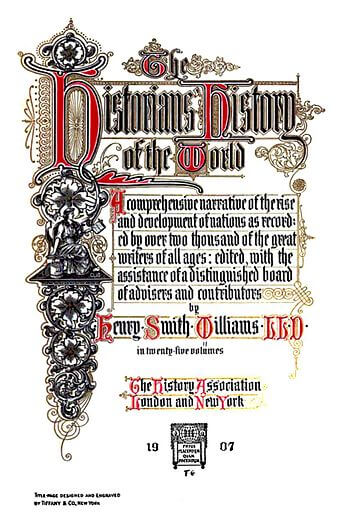
Cultural legacy or legends are often defined as widespread tales within a community but not corroborated by outside sources (such as the King Arthur legends). Unlike myth, which lacks such support, history is supported by verifiable facts. However, the character of history has been interpreted in various ways that have changed over time and continue to do so. Ancient cultural influences have influenced these interpretations. The modern study of history covers a wide range of topics and encompasses certain geographical areas and particular topical or thematic aspects of historical inquiry. The academic study of history is a prominent field of study in higher education, and it is frequently taught as part of primary and secondary school. Since he was one of the first historians, Herodotus, a Greek historian from the fifth century BC, is sometimes called the "founder of history" in the Western tradition. He has also been termed the "father of lies." He collaborated with his contemporaries in Thucydides to lay the groundwork for the present study of historical events and societies. Even now, readers still read their writings. The contrast between Thucydides' emphasis on the military and Herodotus' emphasis on culture continues to influence how modern historians write about the past. Only manuscripts from the second century BC have been preserved, although in East Asia, a state chronicle known as the Spring and Autumn Annals was thought to date back to as early as 722 BC. Etymology:The Ancient Greek prefix history, which translates as "inquiry, knowledge from inquiry, or judge," is where the term history originates. When he employed the term in his History of Animals, Aristotle did so in that context. The Homeric Hymns, Heraclitus, the Athenian Ephebes' Pledge, and Boeotic Inscriptions are where the ancestral word first appears in writing (in a legal sense, either "judge" or "witness" or similar). The Greek word historia, translated into Classical Latin as "history," originally meant "examination, inquiry, research, account, description, written account of past events, writing of history, historical narrative, documented knowledge of previous events, story, narrative." The Old English word star, which means "history, narrative, or story," was a Latin borrowing that may have come from Old Irish or Old Welsh. However, this word had lost its use by the late Old English period. During this time, the word historia changed into words like istorie, estoire, and historie, gaining new definitions like "account of the events of a person's life (beginning of the 12th century), chronicle, the account of events as relevant to a group of people or people in general (1155), dramatic or pictorial representation of historical events (around 1240), a body of knowledge regarding human evolution, science, and more (around 1265). History was once again successfully adopted from Anglo-Norman by Middle English. "I find in a book prepared | To this matiere, an old histoire, | The which cometh nou to mi memoir," begins John Gower's Confessio Amantis from the 1390s (VI.1383). It first appeared in the Ancrene Wisse of the 13th century, but it became widely used in the late 14th century. In Medieval English, "history" meant "story". The meaning was narrowed starting in the middle of the 15th century only to cover "the branch of knowledge that deals with earlier occurrences; the official record or study of previous events, especially human affairs." Francis Bacon employed the phrase in the Greek sense when he wrote on natural history in the late 16th century, one of the word's older senses that came back into vogue with the Renaissance. He defined history as the "knowledge of objects specified by location and time," whose information was gained from memory (while science was provided by reason, and poetry was provided by fantasy). English and Chinese designate distinct words for human history and narrative, manifesting the linguistic synthetic vs analytic/isolating divide (vs). The same word is still used to refer to both "history" and "story" in contemporary German, French, and most other Germanic and Romance languages, which are heavily inflected and based on synthetic constructions. A "researcher of history" is described by the word historian, which first occurred in literature in 1531. "what occurred with mankind" and "the academic study of the happened" are still used interchangeably in all European languages when referring to historical events. The second definition is occasionally distinguished by a capital letter or the word "historiography." Historical and historic are both prefixes that date back to 1661. DescriptionHistorians' lessons from the past are sometimes intended to benefit their present civilization. They write in the context of their period and with proper consideration for the prominent theories that are being used to understand the past. Benedetto Croce once stated, "All history is modern history." Creating narratives about and analyzing historical events about the human race helps to create a "real discourse of the past," which facilitates history. The institutional development of this discourse is the focus of contemporary historical scholarship. 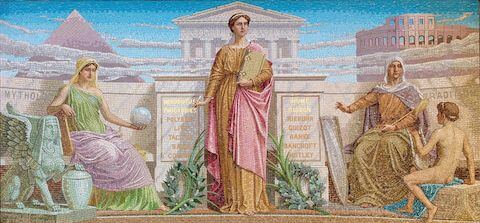
The competent and impartial use of the huge array of historical sources-often located in archives-is a crucial aspect of the historian's job. The historical record comprises all incidents that have been recalled and documented in some genuine way. Finding the sources that can most significantly help create truthful descriptions of the past is the task of historical discourse. After reducing a larger archive, the historian's archive remains by finding some texts and records inappropriate (by falsifying their claims to represent the "true past"). As historians reflect on or highlight various historical events, silence is ineluctably produced during the narrative-creation process. Both the social sciences and the humanities have, at various periods, including the study of history in their respective categories. Incorporating techniques from both large fields can also be considered a link. One of the other classifications is firmly backed by some historians. The Annales school revolutionized the study of international history in the 20th century by combining disciplines, including economics, sociology, and geography. Historians have always used the study of written records and oral histories to try and provide answers to historical issues. Historical events have either been recorded in writing or by passing down an oral tradition. Historically, monuments, inscriptions, and images have all been utilized as sources. The three categories of historical knowledge-what is written, what was said, and what has been physically preserved-can be broadly distinguished, and historians frequently draw from all three. However, the line dividing history from the past is drawn by writing. To advance historical research, archaeology is particularly useful for locating buried places and artefacts. Findings from archaeology are rarely made in a vacuum; narrative sources frequently support them. History is not a field that influences the methods or approaches used in archaeology. The field of archaeology known as "historical archaeology" frequently compares its findings to those of textual sources from the present. For instance, Mark Leone, an archaeologist, and historian of historic Annapolis, Maryland, in the United States, has made an effort to comprehend the contradiction between textual documents idealizing "liberty" and the material record, demonstrating the ownership of enslaved people and the inequalities of wealth revealed by the study of the total historical environment. History has frequently been studied with some practical or theoretical goal. There are various methods to organize history, including chronologically, culturally, territorially, and philosophically. These divisions do not overlap and frequently have important intersections. It is conceivable for historians to be interested in both the extremely specific and the very general, even though specialization is the current trend. Known as "Big History," this specialization is resisted in favor of a quest for broader patterns or trends. However, history can also be studied out of pure intellectual curiosity. Prehistory:The recollection of Homo sapiens sapiens' collective past experiences is human history and is mostly preserved in written documents. Even without a written record, some information can be reconstructed by examining paintings, drawings, carvings, and other artifacts. The process of learning about the past in a location without written records or where it is challenging to decipher a culture's writing system is called "prehistory" by historians. Prehistory studies have been considered essential since the 20th century to avoid history's implicit exclusion of some civilizations, such as those of Sub-Saharan Africa and pre-Columbian America. The focus on the Western world by historians in the West has drawn criticism for being excessive. English historian E. H. Carr penned the following in 1961: "When people stop living just in the present and start to take an active interest in both their past and their future, the boundary between prehistoric and historical times is crossed. Tradition is the transmission of previous customs and knowledge into the present, and it is through tradition that history is first written. To preserve historical information for future generations, records start to be preserved." This term encompasses the span of history and the persistent oral traditions preserved and passed down to subsequent generations, even before their encounters with European civilization, by groups of people with strong interests, such as Indigenous Australians and New Zealand Mori in the past. Historiography: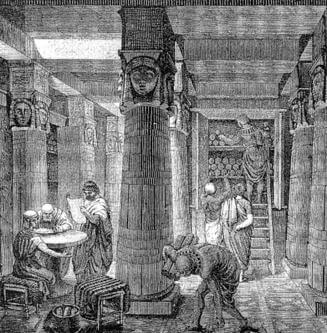
Many terms that pertain to historiography are used. First, it can be used to explain how history was generated, especially how approaches and practices have changed throughout time. Second, it might be connected to what has previously been produced, like a certain body of historical literature (for example, "medieval historiography during the 1960s" means "Works of medieval history written during the 1960s"). Thirdly, it might allude to history's guiding philosophy, which explains why history is made. Similar to the first two, this third idea analyses historical accounts on a meta-level and often focuses on other historians' narratives, interpretations, worldviews, uses of data, or presentational styles. Whether history can be taught as a single cohesive narrative or as a collection of conflicting narratives is also up for debate among historians in the profession. Methods:The historical method is a collection of guidelines and processes that historians use to conduct research and then write history utilizing primary sources and other evidence. Generally regarded as the "father of history," Herodotus of Halicarnassus lived from 484 BC to 425 BC. It is believed that Thucydides' History of the Peloponnesian War (c. 460-400 BC) was the first historical book to approach history using a well-developed historical method. Herodotus considered history to be the result of divine intervention. In contrast, Thucydides considered history the result of human actions and decisions and preferred to focus on cause and effect. In his approach to history, Thucydides strongly emphasized chronology, a purportedly neutral point of view, and the idea that human behavior created the society we live in today. Greek historians saw the events of history as being cyclical and reoccurring. In ancient and medieval China, there were historical traditions and sophisticated historical methodology. Sima Qian (145-90 BC), a court historian during the Han dynasty and the author of the Records of the Grand Historian, laid the foundation for professional historiography in East Asia (Shiji). Sima Qian has earned the title of "the Father of Chinese Historiography" due to the caliber of his writing. His Shiji was the standard format for historical writing and biographical literature in China during succeeding dynastic eras. At the start of the medieval era, Christian and Western philosophy benefited from Saint Augustine's contributions. Studying history from a holy or religious perspective during the Medieval and Renaissance eras was common practice. Georg Wilhelm Friedrich Hegel, a historian, and philosopher from Germany, introduced philosophy and a more skeptical method of historical inquiry around 1800. Ibn Khaldun, an early Arab sociologist, spoke of seven errors he believed historians frequently made in the Muqaddimah, his work, in the prologue published in 1377. He considered the past strange and needed justification for this criticism. Ibn Khaldun was original in asserting that the evaluation of pertinent historical material must take into account cultural differences from earlier eras, in differentiating the principles by which the evaluation might be attempted, and, finally, in emphasizing the need for practical experience in addition to rational principles to evaluate historical cultures. Idle superstition and unquestioning belief in the accuracy of the past were two things Ibn Khaldun frequently chastised. As a result, he developed what he called his "new science" and applied a scientific approach to studying history. He is known as the "father of historiography" or the "father of the philosophy of history" because his historical methodology also paved the way for the study of the state's historical significance, communication, propaganda, and systematic prejudice. In the 17th and 18th centuries, historians in the West, particularly in France and Germany, created contemporary methods of historiography. Herbert Spencer enumerated these techniques in 1851 and said: "The rich veins of wisdom that ramify amidst this worthless debris, however, lie completely ignored. They [historians] laboriously collect all the vividly colored shards from the various layers of our historical deposits, seize upon everything intriguing and shining, and grin like children at their glittering finds. Although enormous volumes of precious ore that ought to have been dug and from which golden truths ought to have been smelted are left untaught and unwanted, enormous amounts of rubbish are avariciously gathered." Spencer referred to the scientific theory of history as the "rich ore." Henry Thomas Buckle, meantime, expressed the hope that history will one day be a science: 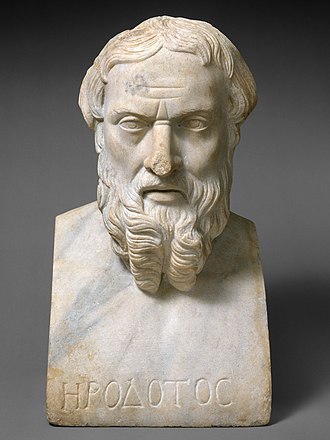
"Events in nature that appear to be the most erratic and unpredictable have been explained and proven to follow a set of universal principles. This has been done because capable individuals and, most importantly, men of the patient, unwavering thought have studied occurrences to find their regularity, and if human events were subjected to a similar treatment, we have every reason to expect similar conclusions." Unlike Buckle's fantasy, the 19th-century historian who had the most impact on methodology was Leopold von Ranke in Germany. He pushed history further from science by limiting it to "what truly happened." For Ranke, historical data must be meticulously gathered, impartially analyzed, and rigorously put together. However, these methods "are only the foundational elements and preliminary steps of research. To make generalizations or rules about the facts being studied and to find order and regularity in them, science must first look for these two characteristics in the data." No, history is not a science, despite the pursuits of historians like Ranke and several others after him. So, if historians claim their field cannot be regarded as a science given how they conduct their art, we must believe them. Whatever else he may be doing, if he isn't conducting science, he isn't doing anything at all. History, as it is traditionally taught and conducted, is not a science, and the traditional historian is not one either. Academic historians shifted their attention away from epic nationalistic narratives, which frequently tended to exalt the nation or famous people, and towards more unbiased and in-depth assessments of social and intellectual forces during the 20th century. The propensity to approach history more as a social science in the 20th century, as opposed to how it had historically been approached, was a significant development in historical methodology. A wide range of researchers, including Fernand Braudel, E. H. Carr, Fritz Fischer, Emmanuel Le Roy Ladurie, Hans-Ulrich Wehler, Bruce Trigger, Marc Bloch, Karl Dietrich Bracher, Peter Gay, Robert Fogel, Lucien Febvre, and Lawrence Stone, were among the prominent proponents of history as a social science. Numerous proponents of using history as a social science were renowned for using an interdisciplinary approach. History has been merged with sociology, geography, anthropology, economics, and other disciplines by Wehler, Bloch, Fischer, Stone, Febvre, and Le Roy Ladurie. Braudel combined history with geography; Bracher combined history with political science; Fogel combined economics and history; Gay combined history with psychology; and Trigger combined history with archaeology. But no history theory was created due to these diverse efforts. A professional historian has only ever penned one theory of history thus far. Any more existing historical theories were authored by specialists in different subjects (for example, the Marxian theory of history). With the advent of computer technology, the study of digital history has recently begun investigating fresh approaches to analyze historical data and create digital research. John Lukacs, Donald Creighton, Gertrude, Hugh Trevor-Roper, and Gerhard Ritter were among the historians who vehemently disagreed with the notion that history is a social science and insisted history should instead be viewed as an art form. They also stated that the historians' use of imagination was the secret to their success. French historians of the Annales School contributed significantly to the growth of cultural history (see "Histoire des mentalités") and the introduction of quantitative history, which followed the lives of average persons using raw data. Intellectual historians, including Herbert Butterfield, Ernst Nolte, and George Mosse, defended the importance of ideas in history. Because of the civil rights movement, American historians have paid attention to previously underrepresented racial, ethnic, and socioeconomic groups. Alltagsgeschichte was a different type of social history that appeared post-World War II (History of Everyday Life). The daily lives of common people in Germany during the 20th century, particularly during the Nazi era, were the subject of research by academics like Martin Broszat, Ian Kershaw, and Detlev Peukert. Karl Marx's theories have been attempted to be validated by Marxist historians such as Eric Hobsbawm, E. P. Thompson, Rodney Hilton, Georges Lefebvre, Eugene Genovese, Isaac Deutscher, C. L. R. James, Timothy Mason, Herbert Aptheker, Arno J. Mayer, and Christopher Hill by examining history from a Marxist perspective. François Furet, Richard Pipes, J. C. D. Clark, Roland Mousnier, Henry Ashby Turner, and Robert Conquest are only a few historians who have provided anti-Marxist interpretations of history in opposition to the Marxist view of the past. Joan Wallach Scott, Claudia Koonz, Natalie Zemon Davis, Sheila Rowbotham, Gisela Bock, Gerda Lerner, Elizabeth Fox-Genovese, and Lynn Hunt are just a few feminist historians who have claimed that it's crucial to understand what women went through in the past. Considering that each person's perception of the materials forms the foundation of all history, postmodernists have recently questioned the necessity and legitimacy of studying history. Richard J. Evans argued for the value of history in his 1997 book In Defence of History. The Killing of History, a 1994 book by Australian historian Keith Windschuttle, was another response to postmodernist criticism of history. John H. Arnold proposed that history is an argument that can lead to change. Most historians now begin their study in the physical or digital archive. They frequently make a claim and then cite studies to back it up. Information access on the internet is censored, according to digital information firms like Google. Digital information corporations like Google have raised concerns about the role of internet censorship in information access. Marxist Philosophy: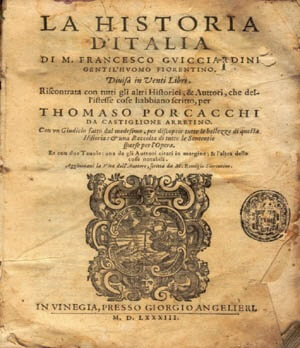
The historical materialism theory of Marx holds that society is fundamentally shaped by the material circumstances of the time, or, in other words, by how individuals engage with one another to fulfill their most fundamental needs, such as housing, food, and clothes themselves and their families. Marx and Engels claimed to have tracked the evolution of these material circumstances in Western Europe throughout five distinct stages. Marxist historiography was long considered to be the standard in the Soviet Union. Still, Mikhail Krom claims that since communism there fell apart in 1991, it has been relegated to the periphery of academia. Possible Flaws in How History is Produced:The fact that historical events and observable facts can be interpreted in many ways has led many historians to assume that bias is inherent in making history. The idea put forth by Constantin Fasolt was that the act of silence itself binds politics and history together. Additionally, he added: "A second prevalent perspective of the relationship between history and politics based on the simple observation that politics frequently influence historians." Michel-Rolph Trouillot contends that as history is entrenched in the archives, silences and forgotten portions of the past may be purposefully left out as part of a narrative strategy determining how particular historical periods are remembered. Numerous things can lead to historical omissions, which can significantly impact historical records. It's also possible to unintentionally omit information or withhold it on purpose. "Silencing," "selective memory," and "erasures" are just a few of the terminology historians have used to characterize the process of erasing historical facts. The harmful effects of these omissions on minority groups were described by Gerda Lerner, a historian of the 20th century who devoted most of her work to historical omissions regarding women and their achievements. William Cronon, an environmental historian, put forward three criteria for narratives that must meet to avoid bias and guarantee authenticity and accuracy:
Historians:Discovering, gathering, organizing, and presenting information about historical events is the work of both professional and amateur historians. Archaeological evidence, documented primary materials, oral histories, oral stories, and other archive materials are the sources they use to find this information. Lists of historians can be organized according to the historical era in which each historian wrote, which is usually different from the era in which they were most focused. A lot of the time, chroniclers and annalists are also mentioned, even though they are not actual historians. Judgment:The issue of communal memory is related to the one of judging history. The goals of historical interpretations or judgments differ from those of legal decisions, which must be made as soon as feasible and in a conclusive manner after the occurrences. The desire to offer the "judgment of history" has been rejected by Western historians since the 20th century. Pseudohistory:Pseudohistory is a term used to describe books that claim to be historical but deviate from accepted historiographical rules in a way that casts doubt on their conclusions.
Next TopicMouse Definition
|
 For Videos Join Our Youtube Channel: Join Now
For Videos Join Our Youtube Channel: Join Now
Feedback
- Send your Feedback to [email protected]
Help Others, Please Share









